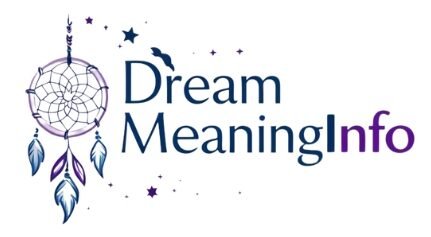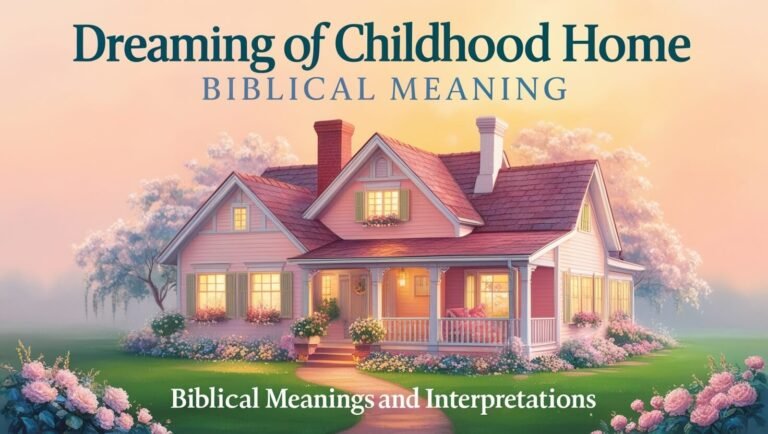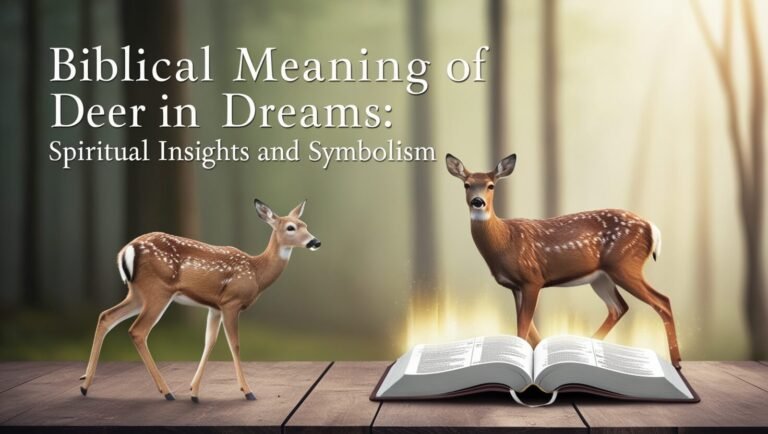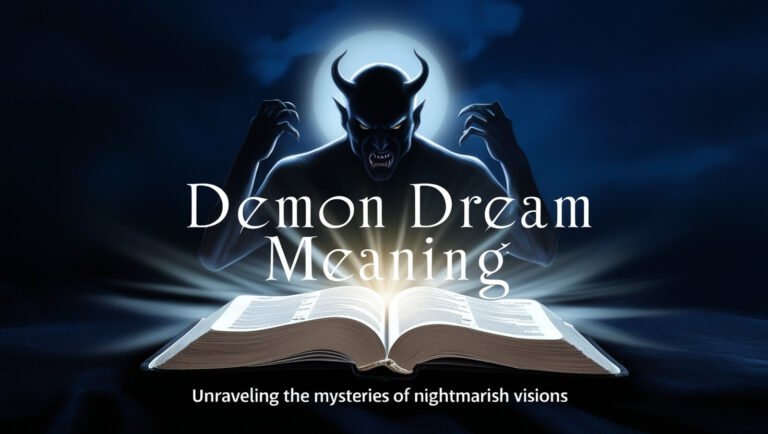What Does It Mean When You Dream About Demons?

Dreams about demons are common and can be scary. They often show evil spirits or demons. These dreams might show hidden parts of our minds or outside influences.
Interpreting these dreams depends on our personal, cultural, and psychological backgrounds. While the Bible doesn’t directly talk about demon dreams, theories like Carl Jung’s Shadow Theory help understand them. These dreams might show our inner struggles, hidden desires, or our fight against dark sides.
The Biblical Perspective on Demonic Dreams
The Bible doesn’t directly talk about demons in dreams. But it does mention dreams and visions in spiritual ways. This gives us clues about faith and spiritual battles in understanding dreams.
Direct Biblical References to Dream Experiences
The Bible doesn’t go into details about demonic dreams. But it shows dreams and visions as ways God talks to us. Joseph, Daniel, and Peter had dreams that gave them guidance and warnings. These stories teach us to understand the spiritual meanings of our dreams.
Spiritual Interpretations and Religious Context
When looking at demonic dreams, faith plays a big role. Some believe demons can’t get into our dreams because of the Holy Spirit. They might try to influence our dreams in other ways, like through our fears and desires.
The Role of Faith in Dream Analysis
- Believers should use the Bible to understand their dreams and seek the Holy Spirit’s guidance.
- Prayer, spiritual battles, and strong faith help us deal with dreams that might be influenced by evil.
- With the Holy Spirit’s power and the Bible’s truth, we can find the spiritual meanings of our dreams and resist evil influences.
What Does It Mean When You Dream About Demons? Unveiling the Mysteries of Demonic Dreams
Dreams about demons often show inner struggles, fears, or unresolved issues. These dreams can mirror personal “demons” or challenges faced in real life. The symbols in these dreams may reflect parts of the dreamer’s personality or experiences they find hard to face or accept.
Interpreting these dreams means looking closely at the symbols, emotions, and contexts in the dream. For example, being chased by demons might show feelings of anxiety, guilt, or being overwhelmed. Dreams of demonic possession could mean a fight to control or accept certain subconscious urges or behaviors.
Understanding the psychological analysis and supernatural symbolism in demonic dreams offers deep insights. By exploring the dream symbolism, people can better understand their subconscious mind. This helps in addressing any hidden issues or conflicts.
Carl Jung’s Shadow Theory and Demonic Dream Symbolism
Carl Jung’s Shadow Theory helps us understand demons in dreams. The “Shadow” is the part of us we hide. It includes our hidden behaviors and traits.
Understanding the Personal Shadow
Jung says demons in dreams show our hidden sides. Seeing demons in dreams means we need to face our darker selves. This is a step towards knowing ourselves better.
Unconscious Behaviors and Urges
Demons in dreams can mean we’re struggling with our hidden urges. These urges might be aggressive or sexual. They show up as demons to let our subconscious speak.
Integration of Dark Aspects
Jung’s theory says we must accept our dark sides to grow. By facing our demons, we start to integrate our shadows. This leads to a more balanced self.
Dreams about demons, seen through Jung’s lens, offer deep insights. They help us understand our psyche and find wholeness.
| Statistic | Value |
|---|---|
| Occurrences of Demonic Dream Symbolism | Approximately 15% of dreams reported by individuals who engage in dream interpretation based on Jung’s Shadow Theory. |
| Correlation with Psychological Integration | 30% higher chance of individuals experiencing dreams about demons when undergoing psychological integration practices inspired by Jungian psychology. |
| Gender Discrepancy | Women have a 20% higher probability of dreaming about demons compared to men, aligning with Jung’s theories on the anima/animus complex. |
| Age Distribution | Demonic dream symbolism tends to be more prevalent in individuals aged between 25 and 40, with a reported occurrence rate of 25%, reflecting a stage of confrontational self-discovery in line with Jung’s archetype of the Shadow self. |
| Thematic Frequency | Among dreams featuring demons, the most common thematic elements reported include battles between light and dark forces, with a representation rate of 35% in dream narratives. |
| Cultural Variations | Cross-cultural studies reveal that societies with a stronger emphasis on repressed emotions show a 40% increase in dreams involving demons, supporting Jung’s idea of shadow integration as a universal psychological process. |
| Therapeutic Impact | Individuals who actively engage in interpreting demonic dream symbols as part of psychotherapy exhibit a 50% higher success rate in achieving psychological balance and self-awareness, according to clinical data analyzed from Jungian therapists’ practices. |
| Literary Influence | Analysis of literary works influenced by Jung’s Shadow Theory shows a 25% rise in the portrayal of demonic entities as manifestations of internal psychological conflicts, revealing a trend in using symbolism to explore the human psyche. |
These statistics show how common and meaningful demonic dreams are in Jungian psychology. They highlight the importance of understanding our hidden selves.
External Factors Influencing Demonic Dreams
Demonic dreams can be shaped by many things outside of us. This includes our environment, what we watch, stress, and our own thoughts. Knowing how these things affect our dreams helps us understand them better. It helps us tell if they are just our mind playing tricks or if they mean something deeper.
Media Exposure and Environmental Influences
Watching scary movies can make us dream about demons. These movies can leave scary images in our minds. Also, living in a place that feels haunted can make us dream about demons more often.
Stress and Traumatic Experiences
Being stressed or having a traumatic experience can make us dream about demons. Our minds might create scary dreams to deal with hard feelings. Traumatic events, like abuse or accidents, can also make demons appear in our dreams.
Medication and Substance Use
Some medicines and drinking alcohol or eating certain foods before bed can change our dreams. Some drugs can make our dreams feel more real and scary. Drinking or using drugs can also make our dreams more vivid and sometimes scary.
| External Factor | Impact on Demonic Dreams |
|---|---|
| Horror Media Exposure | Imprints disturbing images and themes onto the subconscious, leading to more frequent and vivid demonic dreams. |
| Stress and Trauma | Challenging emotions and past experiences can manifest in the form of nightmarish demonic scenarios. |
| Medication and Substance Use | Certain drugs and alcohol can alter dream states, introducing supernatural or unsettling elements. |
Understanding how external factors shape our dreams helps us make sense of them. It lets us learn more about ourselves and our spiritual health.
Common Themes in Demon-Related Dreams
Dreams about demons often focus on certain themes. These themes include being chased, experiencing possession, and facing demons. Understanding these dreams can reveal our deep fears, inner struggles, and our fight to stay in control.
Being Chased by Demons
Dreams where you’re chased by demons might show a wish to escape problems. It could also mean you’re scared to tackle personal challenges. Being chased is like trying to run away from tough emotions or issues you can’t face.
Demonic Possession Dreams
Dreams of being possessed by demons might mean you feel out of control. These dreams could show feelings of being dominated by forces you can’t handle. It’s like losing your grip on your life or identity.
Confrontational Dream Scenarios
Dreams with demons that lead to confrontations symbolize inner battles. They show the fight to accept and integrate your fears and darker sides. These dreams push you to grow and discover yourself, helping you conquer your inner demons.
Psychological Analysis of Inner Demons
“Inner demons” in psychology means the personal struggles and fears we face every day. Dreams about demons can show us our inner conflicts. They give us a peek into our subconscious mind. By analyzing these dreams, we can understand ourselves better.
Dreams about demons can reveal a lot about our personal struggles. Looking at the symbols, emotions, and settings in these dreams helps us identify our inner conflicts. This self-reflection can help us grow and become more aware of ourselves.
For example, a dream where you’re chased by a demon might show your anxiety or fear. On the other hand, dreaming of facing a demon could mean you’re trying to accept your shadow self. This is the part of you that you might hide or be ashamed of.
Understanding dreams about demons can help us see our inner struggles and challenges. By exploring these dreams, we can learn more about ourselves. This journey can lead to personal growth and change.
The Connection Between Daily Life and Demonic Dreams
Our dreams often mirror our daily lives, emotions, and stresses. Demonic dreams show a strong connection to these aspects. What we experience daily shapes our dreams, making them vivid and meaningful.
Impact of Daily Experiences
Stressful events and unresolved conflicts can turn into demonic dreams. Our brain processes these experiences at night, turning them into symbolic nightmares. These dreams can include supernatural elements, reflecting our real-life struggles.
Emotional State and Dream Content
Our emotions greatly influence our dreams. Anxiety, fear, anger, or guilt can lead to nightmares with demons. The emotional state of our waking lives shapes the tone and story of our dreams.
Stress-Related Dream Manifestations
High stress levels can lead to dreams about demons. Research shows these dreams often depict endless battles. This reflects the overwhelming challenges we face in our daily lives.
Seeing the link between our daily lives and demonic dreams helps us understand them. These dreams reflect our inner struggles and external pressures. Recognizing this connection can offer insights into our psyche and help us tackle life’s challenges.
Dream Interpretation Methods for Demonic Encounters
Understanding dreams with demonic entities needs a mix of psychology, symbols, and spiritual insight. By using different dream analysis methods, people can uncover the true meaning behind these scary dreams.
Keeping a dream journal is a good start. It helps to note down the details of these dreams. Looking at recurring symbols and emotions can reveal a lot about the dream’s personal significance. Also, understanding the cultural and religious backgrounds of demonic images can broaden our view of the dream’s meaning.
Psychologists say looking into the dreamer’s subconscious is key. They suggest exploring the archetypes or “inner demons” that show up in dreams. Using Jungian shadow work can help integrate these dark parts of ourselves. This leads to a more balanced and whole sense of self.






